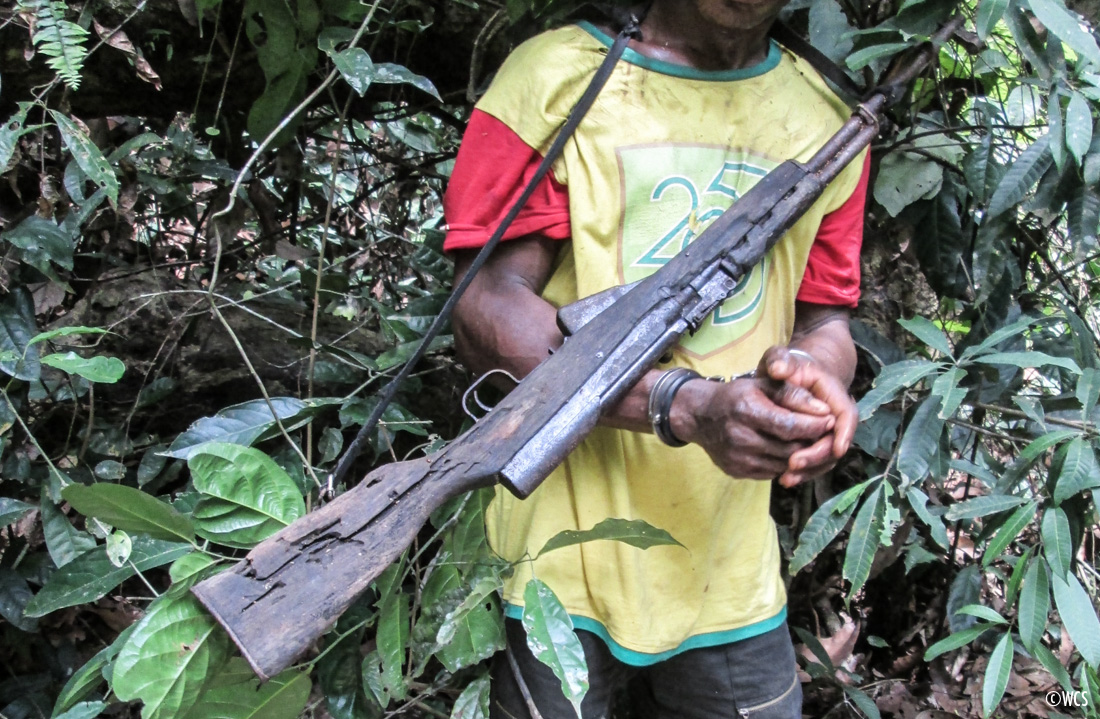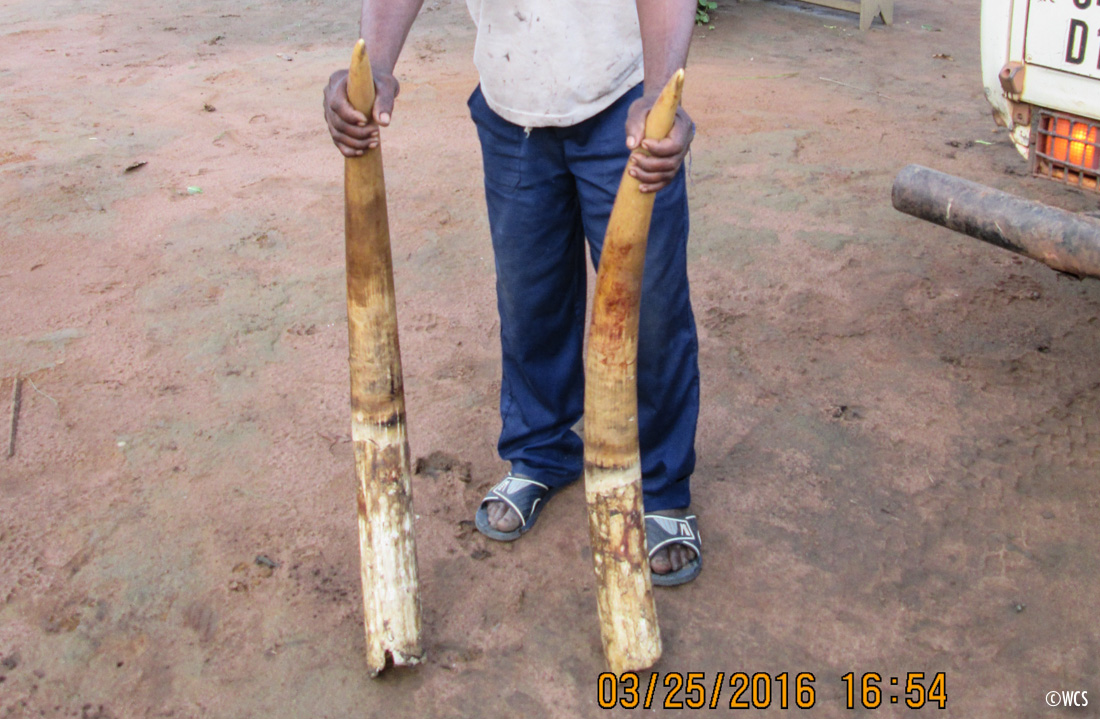
Roadblock leads to poacher arrests
At the end of March 2016, at a routine roadblock on a logging route cutting through the forest in northern Congo, a pastor from the village of Ngombe was caught with a basket loaded full of elephant meat. The pastor was arrested by the Ministry of Forestry Economy and Sustainable Development (MEFDD) ecoguards manning the barricade, and taken to the Ngombe police station for questioning. Ecoguards from a conservation project that is a partnership between MEFDD, WCS, and the IFO logging company, monitor the roads of this region in the Republic of Congo and enforce Congo’s wildlife laws in tracts of forest that lie beyond the boundaries of protected areas. The MEFDD/WCS/IFO project is located in the Ngombe FSC-certified forestry concession.
”Access to the forest is now much easier for poachers, facilitating hunting and the transport of the spoils of poaching missions back to the market place.
The forest surrounding Ngombe still maintains an elephant population, but roads opened up in the area for logging activities have a grave impact on the wildlife of the region. Access to the forest is now much easier for poachers, facilitating hunting and the transport of the spoils of poaching missions back to the market place. As evidenced by this latest arrest, roadblocks on these transport routes are an effective way of reducing wildlife crime in the area.
After the pastor was interrogated and an investigation carried out, three other members of Ngombe village were implicated in the poaching incident. The investigation was supported by a WCS project aimed at ensuring effective judicial follow-up and prosecution of arrested poachers in the courts. The story arose that two men had set out on poaching trip earlier that week, and after killing an elephant the poachers hacked off the elephant’s tusks and carried these back to Ngombe under the cover of darkness. The tusks were stashed at a village elder’s house, the owner of an automatic weapon that was hired for the hunt. The quantity of meat was too great for the men to carry so they hid it in the undergrowth. The pastor later went to fetch the meat on his motorbike, leading to his arrest.

In a follow up operation by the MEFDD and WCS the two tusks, hidden behind the old gun owner’s house, and two automatic weapons and 45 rounds of ammunition stashed in the forest were confiscated. The pastor, the man in possession of the ivory and one of the poachers have been arrested and are to be tried in Ouesso next week. The arrest of the pastor is of particular importance for the fight against wildlife crime in this area. The investigation exposed that the pastor had sought out members of the community known to own weapons and contracted poachers to head into the forest to hunt elephants with these weapons. As such he forms an important link in the wildlife crime chain, that if cut could have a far-reaching impact on reducing poaching in the area.
‘Ivory barons’ like this pastor, who have a powerful position within the community or links to powerful people, are often much harder to bring to justice than the poachers at the low end of the chain. In this case pressure from high up within Congo’s Ministry of Justice ensured that this ‘ivory baron’ remained in prison prior to his hearing, a high-risk time for corruption that often allows alleged wildlife criminals to disappear before being tried.

